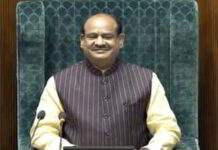Bizarre judgment: On the Madhya Pradesh High Court’s order
Personal law norms cannot be used to invalidate inter-faith marriages
It is an old principle that ignorance of law is no excuse. Evidently, this applies not only to offenders but also to judges. The Madhya Pradesh High Court’s order ruling declining to give protection to a couple on the ground that a marriage between a Muslim man and Hindu woman will not be valid, even if registered under the Special Marriage Act (SMA), 1954, reflects an incredible misunderstanding of the law. The judge examined Muslim law treatises to conclude that a Muslim cannot marry an “idolatress or fire-worshipper”, as such a marriage would be irregular. The SMA was passed precisely to allow inter-faith couples to get married without the requirements of marriage rituals associated with their religions. For a court to dissect the personal law requirements of the parties to enter into a valid marriage, when all they wanted was police protection to appear before the Marriage Registration Officer, is nothing short of bizarre. The question raised by Justice G.S. Ahluwalia — whether the inter-faith marriage that was intended to be registered under the SMA will be valid under Muslim law — is utterly irrelevant to the case at hand. Even though counsel for the couple advanced the correct argument that the Special Marriage Act would override the personal law of their respective religions, the judge chose to examine whether such a marriage would be valid or void or irregular under Mohammedan law.
The judge concedes that when a marriage is performed under SMA, it cannot be challenged on the ground of non-performance of mandatory marriage rituals. The only justifications offered by the judge is that the SMA itself provides that when the parties are within the degrees of prohibited relationship, it shall not be valid. From this, he draws a conclusion that a marriage that is invalid in personal law cannot be legalised by registering it under the SMA. It is clear that this is only a salutary provision that exists to prevent the Act from being misused to solemnise the marriage of those in prohibited relationships, and does not mean that every inter-faith marriage has to be scrutinised for compliance with personal law requirements. It is strange that the court underscores that the woman petitioner in this case did not want to convert to Islam, but at the same time examines the case through the lens of Muslim law. This is nothing but an attempt to impose religious personal law on those opting for a secular marriage. Allowing this judgment to stand will render the entire Special Marriage Act superfluous. It will also undermine any move towards a uniform civil code, and privileges Muslim personal law over the secular Special Marriages Act. In effect, it could drive people to religious conversion just for the sake of solemnising their marriages.
















